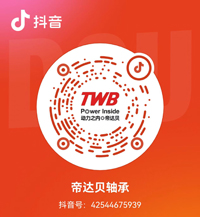Keep the bearing and its surrounding environment clean, even invisible small dust in the bearing will increase the wear, vibration and noise of the bearing.
When using and installing bearings, be careful. It is not allowed to punch hard, strike the bearing directly with a hammer, or transmit pressure through rolling elements.
Use proper and accurate installation tools, try to use special tools, and try to avoid using cloth and short fibers.
To prevent the bearing from rusting, when taking the bearing directly by hand, the sweat on the hand shall be fully cleaned, and the bearing shall be coated with high-quality mineral oil before operation, especially in rainy season and summer.
Bearing Installation Methods
Thermodilatometry: it is recommended to use induction heating, which is uniform, efficient and clean.
Oil tank heating:
1.Heat the bearing not exceed 120℃;
2.To avoid direct contact with the bottom of the oil sink, place the bearing on the metal mesh or hang it.
3.In order to avoid difficulties in installation due to cooling of inner ring during operation, the heated bearing can be 20 ℃~30 ℃ higher than the required temperature.
4.After cooling down after installation, there will be axial contraction. In order to avoid the gap between the inner ring and the shaft shoulder, the nut on the shaft or other appropriate methods can be used for compressing.














